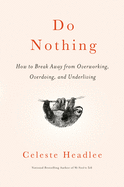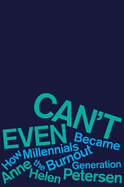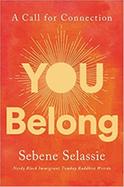 In the spirit of accomplishing more each day--more work, more chores, more errands, more self-care--I've read countless books on time management. The one that changed my relationship with work more than any other, though, was not about doing more, but about doing less. In Do Nothing (Harmony, $25), Celeste Headlee invites readers to reconsider the role of rest in work, all while placing our modern understanding of work in its historical context. We must rest, she argues, or we burn out.
In the spirit of accomplishing more each day--more work, more chores, more errands, more self-care--I've read countless books on time management. The one that changed my relationship with work more than any other, though, was not about doing more, but about doing less. In Do Nothing (Harmony, $25), Celeste Headlee invites readers to reconsider the role of rest in work, all while placing our modern understanding of work in its historical context. We must rest, she argues, or we burn out.
 This concept of burnout is the crux of Anne Helen Peterson's Can't Even (Houghton Mifflin Harcourt, $26), which expands on her viral Buzzfeed article. In Worked Over (Basic Books, $28), sociologist Jamie McCallum draws important connections between this culture of burnout and constant work with persistent inequalities in American society. When I picked up Wintering (Riverhead, $24) last month, I encountered yet again these themes of work and rest and burnout, woven into Katherine May's story of her own forced rest and what it taught her about the nature of her work.
This concept of burnout is the crux of Anne Helen Peterson's Can't Even (Houghton Mifflin Harcourt, $26), which expands on her viral Buzzfeed article. In Worked Over (Basic Books, $28), sociologist Jamie McCallum draws important connections between this culture of burnout and constant work with persistent inequalities in American society. When I picked up Wintering (Riverhead, $24) last month, I encountered yet again these themes of work and rest and burnout, woven into Katherine May's story of her own forced rest and what it taught her about the nature of her work.
 These books about the culture of work (and rest) have me thinking in news ways about how I relate to my own daily work in the nonprofit sector, how I show up and how in turn I encourage others to show up. To that end, my first planned book for the new year is You Belong (HarperOne, $27.99), in which meditation expert Sebene Selassie explores how our sense of belonging and connection shapes the world we live in. Before I start that work, however, I will take time to rest on these shortest days of the year and embrace that I am--and we all are--more than what we can produce in a given day. As we stare down the uncertainty of a new year in this strange time, I invite you to do the same. --Kerry McHugh, blogger at Entomology of a Bookworm
These books about the culture of work (and rest) have me thinking in news ways about how I relate to my own daily work in the nonprofit sector, how I show up and how in turn I encourage others to show up. To that end, my first planned book for the new year is You Belong (HarperOne, $27.99), in which meditation expert Sebene Selassie explores how our sense of belonging and connection shapes the world we live in. Before I start that work, however, I will take time to rest on these shortest days of the year and embrace that I am--and we all are--more than what we can produce in a given day. As we stare down the uncertainty of a new year in this strange time, I invite you to do the same. --Kerry McHugh, blogger at Entomology of a Bookworm

